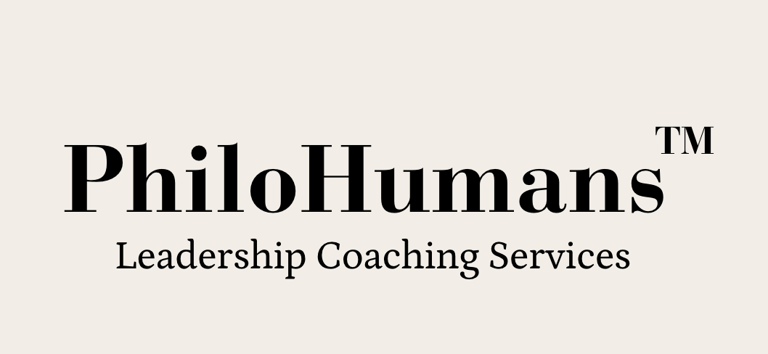Service as the Backbone of PhiloHuman Leadership: Embracing Servant Leadership to Transform Teams
Explore how servant leadership forms the backbone of PhiloHuman leadership. Discover strategies to transform teams through empathy, authenticity, and shared humanity in service-focused leadership.
LEADERSHIP RELATIONSHIPS
Dr. Rojin Karickal
10/9/20242 min read


In today's rapidly evolving world, where influence and impact are paramount, leaders are increasingly called upon to break traditional molds and adopt new paradigms. The PhiloHuman mindset, with its commitment to authenticity, empathy, and shared humanity, offers a refreshing foundational approach. At its core, this mindset places service at the heart of leadership, perfectly aligning with the principles of servant leadership. Here’s how integrating service as the backbone of leadership can create transformative teams and organizations.
Understanding the PhiloHuman Mindset
The PhiloHuman mindset emphasizes three pivotal relationships that transformative leaders must nurture:
Relationship with Oneself: This involves cultivating authenticity, allowing leaders to remain true to their values and beliefs.
Relationship with Immediate Circle: Grounded in empathy, it's about understanding and connecting with the needs and aspirations of close collaborators.
Relationship with Humanity: This broader connection is rooted in shared humanity, recognizing the collective bond that unites us all.
These relationships form the bedrock of a service-focused leadership style that fosters trust, collaboration, and mutual respect.
The Role of Service in Leadership
Service-oriented leadership is more than a buzzword; it’s a practice that prioritizes the well-being of others, aiming for collective progress over personal gains. In the PhiloHuman context, service is about empowering team members, encouraging their growth, and enabling each person to reach their full potential.
Authenticity Builds Trust: Leaders who are genuine inspire trust. When team members see their leaders acting authentically, it validates their individuality, encouraging openness and transparency within the organization.
Empathy Bolsters Relationships: A service-minded leader listens actively and responds with empathy, understanding the nuanced needs of their team. This fosters a supportive environment where individuals feel valued and understood.
Shared Humanity Unites Goals: By recognizing shared humanity, leaders align individual goals with organizational objectives. This ensures every action taken contributes to a larger, meaningful mission, fostering a sense of collective belonging and purpose.
Why Servant Leadership is Critical
Servant leadership complements the PhiloHuman mindset by emphasizing that the leader's role is to serve others—team members, the organization, and the community. This leadership style shifts the focus from individual success to team success, resulting in:
Enhanced Team Performance: When leaders support their teams through service, individuals are more likely to harness their strengths and contribute fully, improving overall team performance.
Increased Employee Satisfaction: Service-minded leadership increases job satisfaction as employees feel nurtured and valued, leading to lower turnover rates and higher morale.
Fostering Innovation: A supportive environment where team members feel safe to express ideas and take risks encourages creativity and innovation.
Strengthening Community Relationships: By extending empathy and shared humanity beyond the organization, servant leaders forge stronger ties with the community, enhancing the organization's reputation and societal impact.
Implementing Service in Leadership
To embed service as a foundational principle, leaders should focus on:
Regular Self-reflection: Continuously evaluate your motivations and actions, ensuring alignment with authentic and service-oriented principles.
Actively Listening: Cultivate deep listening skills to fully understand the needs and aspirations of your team and act on their feedback.
Empowering Others: Delegate responsibility and ownership, encouraging team members to lead initiatives and make influential decisions.
Prioritizing Well-being: Implement policies and programs that prioritize the physical, mental, and emotional well-being of your team.
Championing Diversity: Recognize and celebrate diverse perspectives and experiences, fostering an inclusive environment where everyone feels they belong.
Conclusion
Service is not merely an add-on in the PhiloHuman leader’s toolkit but the very backbone that supports authentic, empathetic, and human-centered leadership. By embracing servant leadership, organizations can navigate challenges with a resilient, cohesive, and innovative approach, ultimately leaving a profound positive impact on their teams and communities. As we look to the future of leadership, building on the foundations of service promises a transformative path forward.


